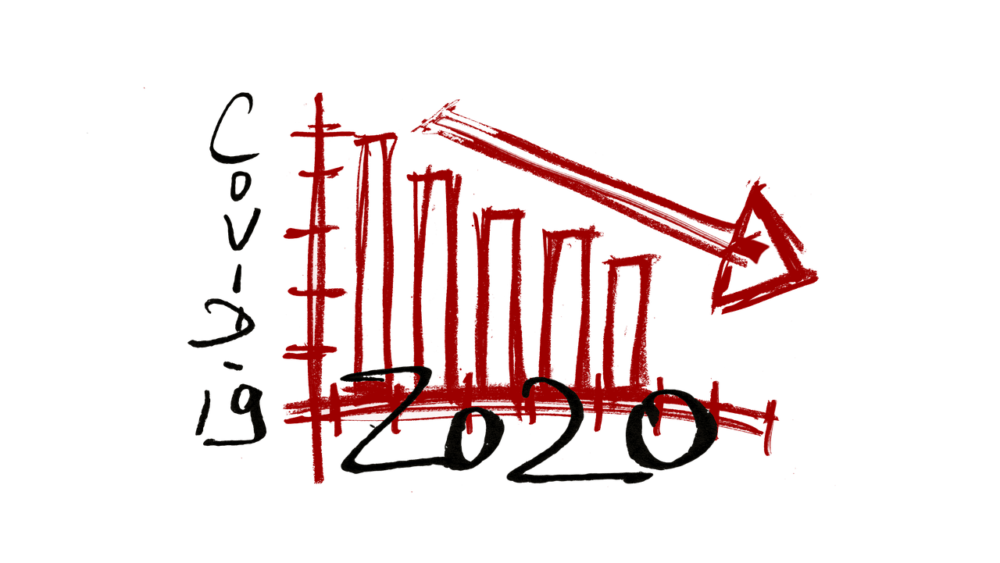The current economic crisis is different to anything before because it has been “induced” – but that could be good news for recovery, according to one of Australia’s most respected economists.
In an online forum for ISCAST – a network of Christians working in science and technology – Professor Ian Harper outlined Australia’s economic scorecard as a result of the COVID-19 pandemic and the recession the country is now experiencing. Harper is Dean of Melbourne Business School and sits on the Board of the Reserve Bank.

Professor Ian Harper Ian Harper
The Federal Government will hand down its budget today and the country is bracing for what Harper says will be, by any account, “an historic budget deficit”. But Harper argues that Australia’s capacity to recover is very different to anything we’ve seen before.
“The Global Financial Crisis, by comparison, is a relatively minor affair. So to is the 1990-1991 recession. What we’re seeing now is much bigger than both those events,” Harper said.
“We need to go back to the 1930s to find a comparable experience.”
But, says Harper, it’s important to stress that the “Great Depression” was much worse than what Australia is currently experiencing, or what “the great majority” of economists are predicting.
“In a supply-side recession like this … you fall off the cliff quicker when you cut off supply. But the reverse is also true. Once services start up again, recovery is also quick. The system comes back to life.”
“So far, the Australian economy has shrunk by a little over seven per cent,” says Harper. “Year-on-year, we’re not expecting the economy to shrink by more than 5 per cent for this recession. In the Great Depression, the Australian economy shrunk by 15 per cent. That’s three times as large.”
Unemployment, too, was significantly worse in the Great Depression, reaching 20 per cent – or one in five people without a job. “Our most recent forecasts for this recession is, at its worst, about 10 per cent … Even if we put all the people who’ve been on JobKeeper on the unemployment lines, you’d get a number of about 14 per cent. So it’s in the ballpark of the Great Depression, but not as severe.”
The biggest thing that sets the COVID-19 recession apart from other recessions in Australia’s history, says Harper, is that this is an “induced experience.”
“As a means of addressing the pandemic and the health crisis, the government has shut off the part of the economy that relies for its growth and survival on the gathering of people. The services part of the economy has been deliberately shut off.”
“It’s very much like the economy has a tourniquet preventing the poison which derives from an infected limb from spreading. You apply a tourniquet and it stops circulation. Everything slows down. That’s what we’re experiencing right now.
“But the other side of that is that once you’ve got good reason to say that the danger of infection has passed – ideally, when we have a vaccine, but even in advance of that – you can release the tourniquet and allow the blood to start pumping again. It rushes back into the affected limb.
“In a supply-side recession like this … you fall off the cliff quicker when you cut off supply. But the reverse is also true. Once services start up again, recovery is also quick. The system comes back to life.”
Harper says this is very different from the GFC, the recession of 1990-1991 or even the Great Depression, which were all demand-side phenomena. “People just stopped buying stuff,” he said.
In each of those cases, there was a financial crisis that weakened confidence – the stock market crash of 1929, the interest rate hikes of the late 1980s and adverse financial conditions gave birth to the GFC.
“What we’re living in now is very different. Our financial system is doing just fine. Our banks are safe. Interest rates are at historic lows. Credit availability is high. We don’t have a financial crisis. It’s a very, very good thing for the recovery, which we hope is just around the corner.”
Ian Harper was speaking as part of ISCAST’s new weekly conversation series. Find out more here.



